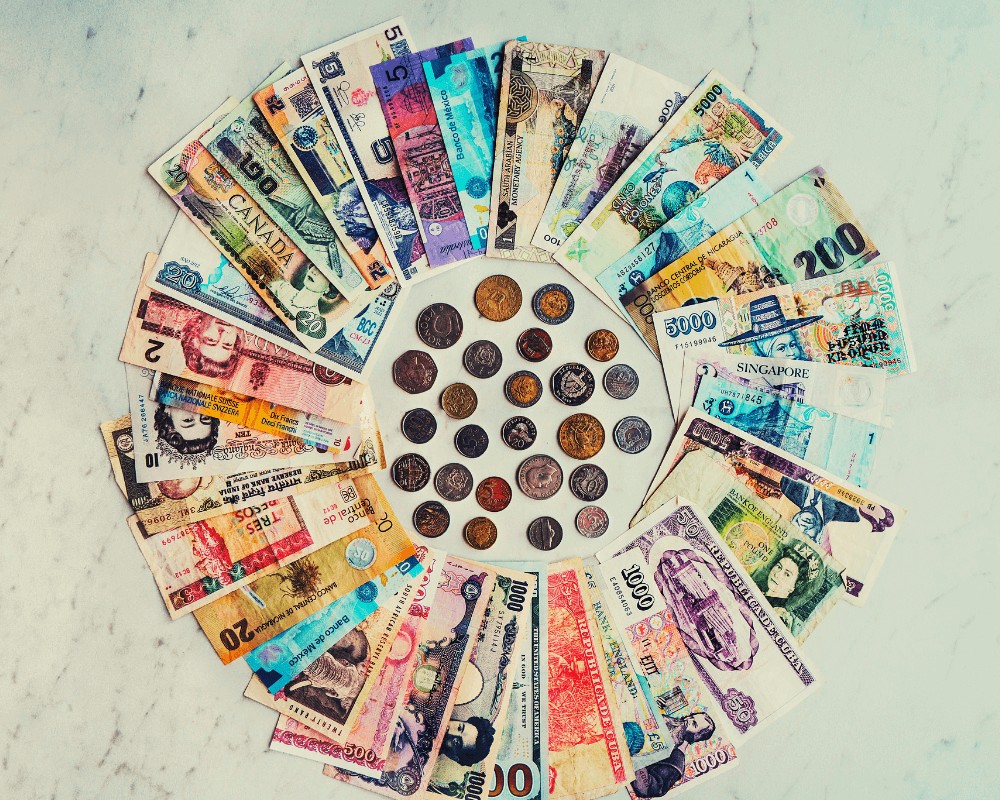Traveling? Try An Exchange Rate Vacation
Are you traveling anytime soon? Thinking about where you want that next trip to be. Have you considered an Exchange Rate Vacation?Financial Freedom, one of the main ways to achieve our destination is by spending far less than we earn. This principle can hold true in many areas of our lives – even in some areas that we would not normally consider.
Enter the idea of an Exchange Rate Vacation.

Why You Should Consider An Exchange Rate Vacation
Consider the following example. You, as the astute investor that you are, have saved up enough for a vacation to an exotic destination. On one hand, you are seriously considering sunny Florida and on the other hand, you are considering an exotic international trip such as Thailand.
So which should you choose? If all other elements of the vacation are equal, you should seriously consider the location with the best travel exchange rate.
Why? Simple – to get the most bang for your buck!

What do we mean by exchange rate? An exchange rate is the amount of currency that you can trade for another currency.
Let’s look through a few scenarios:
1:1 Exchange Rate
An exchange rate of 1:1 would not be very advantageous for a vacationer looking to take advantage of currency differences.
This is because $1 dollar would be worth $1 dollar of goods or services in the location you are visiting. This would mean that the shirt that cost you $15 in your home country costs you $15 in the current county. No difference in pricing.
1:.25 Exchange Rate
An exchange rate of 1:.25 would mean one is paying more for the pleasure of vacationing to the particular destination.
In this example, for each $1 you spend, you are able to buy $.25 of goods or services. That means you would need to spend $4 to get $1 dollars worth of value. That shirt that cost you $15 in your home country now costs you $60. Not a great deal.
1:4 Exchange Rate
On the other hand, an exchange rate of $1:4 would be much more advantageous. This would mean that for each $1 you spend, you are getting $4 worth of goods and services.
That shirt that costs you $15 back home now costs you only $3.75 in the current country. This is the “sweet spot” for having your dollar go further.
A Real Life Example: Brazil 2016
A true life example of an exchange rate vacation in action: Brazil 2016. I had the fortunate opportunity to attend a friend’s wedding in Brazil in April 2016. Not only was it a fantastic chance to get away from the office and experience the new, but the exchange rate happened to be very, very favorable during the time we visited.
For every $1 USD we spent would be equivalent to ~$3.80 Brazilian Reals. This meant that a meal that cost $10 in Brazilian Real would really cost me $2.60 USD. What a deal!
We took full advantage of this on our vacation, dining out at great Brazilian steakhouses and restaurants for only a fraction of what it cost in the US. Is this a good thing for the country and myself? I would answer a definitive yes. Not only am I getting a great deal on my vacation, but I’m helping support a local economy at the same time. This is a “win-win” in my book!
Just A Few Reminders Before You Plunge Into An Exchange Rate Vacation..
A few caveats I would recommend in considering an exchange rate vacation:
1) Make sure the destination is safe.

This is the first and foremost requirement. Sure, I could travel to a war torn country for a great deal, but I would much rather go to a destination where the odds of my survival are much higher.
A great place to start is the Travel Advisories put out by the US Department of State. There are all sorts of countries that have a great exchange rate that are safer for an outsider. There are also all sorts of countries that are not safe; this site will give you a full list of travel advisories, if applicable.
2) Factor in flight costs.

Flights can be expensive, so plan accordingly. If you want to head out to Thailand for a weekend get away and are traveling from the US, that trip will not have a very beneficial cost/experience ratio. A quick rule of thumb; the further away, the longer you should look to make your stay.
One of the last things we want to do is take 15+ hours of travel to a destination and stay only a week. I have found that for myself, I need to plan out a day or at least half a day of recoup time from the long traveling period. Don’t have your recoup time eat into your time in your destination – whenever possible, extend your stay.
3) Go where you know someone (if possible).

Most of my trips have been to visit friends in different states and countries.
Not only do they know the sites to visit, but there is a chance that they will let you stay with them for free (or limited cost). Of course, etiquette demands that you buy them a meal or two for their awesome hospitality!
4) A little upfront planning will make the trip so much better.

Know what you are getting into. Vacations with a certain spontaneity to them certainly are great but make sure you at least have a general idea of where and what you are going to do. A little planning in the beginning can save you a whole lot of headaches in the end.
5) Consider Visa Fees.

Different countries have different visa fees and requirements. Make sure you know and understand what these requirements are in order to maximize your vacation. Some visa fees can get quite expensive whereas some visa fees are quite reasonable.
6) Get off the beaten path.

Travel to a place that you haven’t considered before. In this day and age, with sites like AirBNB.com or VRBO.com, it is easier than ever to find adequate lodging no matter where you are going.
7) Brush up on Your Negotiation Skills.

Be ready to negotiate wherever you go. I have found that while some countries live by the set prices in the storefront, in some countries the price is merely a starting point for the negotiation process.
8) Limit Bank Fees.

Bank fees can quickly eat into any savings. The wise investor looks to limit these fees. While it is not practical to open up a checking account for a short stay vacation, there are other ways to limit bank fees such as using a credit card with low exchange rate fees, limiting cash withdrawals as much as possible or only making one large cash withdrawal as opposed to many smaller withdrawals.
9) Research Your Credit and Debit Card Policies.

Who reads the small fine print of their credit card terms and conditions? Practically no one. Who should read the small fine print of their credit card terms and conditions? Everyone! Each credit card is different but many times there are nice bonuses included within.
For instance, when I was on vacation in California a few years ago, someone had hit my car that was parked on the street during the night. They didn’t leave a note or contact information (bad karma). Someone we were staying with told me to look into my credit card policy as some credit cards will cover the damage. I found out that indeed my credit card did cover the repair. Golden.
For a bit further reading, here are some great exchange rate travel destinations in 2018.
All Things Considered
You can also find exchange rates by doing a quick google search. These rates usually change slowly but can move fast, so be sure to stay on top of trends. I typically use a quick google search for conversions, or if I want to dig a bit deeper, I will go to X-Rates.com.
Typically an exchange rate vacation is for those that love to explore and embrace adventure; I would say that life is short, you only live once, live it up! So next time you are considering your travel destination, consider a country where your currency can go a much longer way.

Want to Learn Active/Passive Income and Investing Strategies?
Sign up for our Live Free and Div Hard email list to receive exclusive ideas and tips straight to your inbox!
Disclaimer: (1) All the information above is not a recommendation for or against any investment vehicle or money management strategy. It should not be construed as advice and each individual that invests needs to take up any decision with the utmost care and diligence. Please seek the advice of a competent business professional before making any financial decision.
(2) This website may contain affiliate links. My goal is to continue to provide you free content and to do so, I may market affiliates from time-to-time. I would appreciate you supporting the sponsors of MoneyByRamey.com as they keep me in business!

